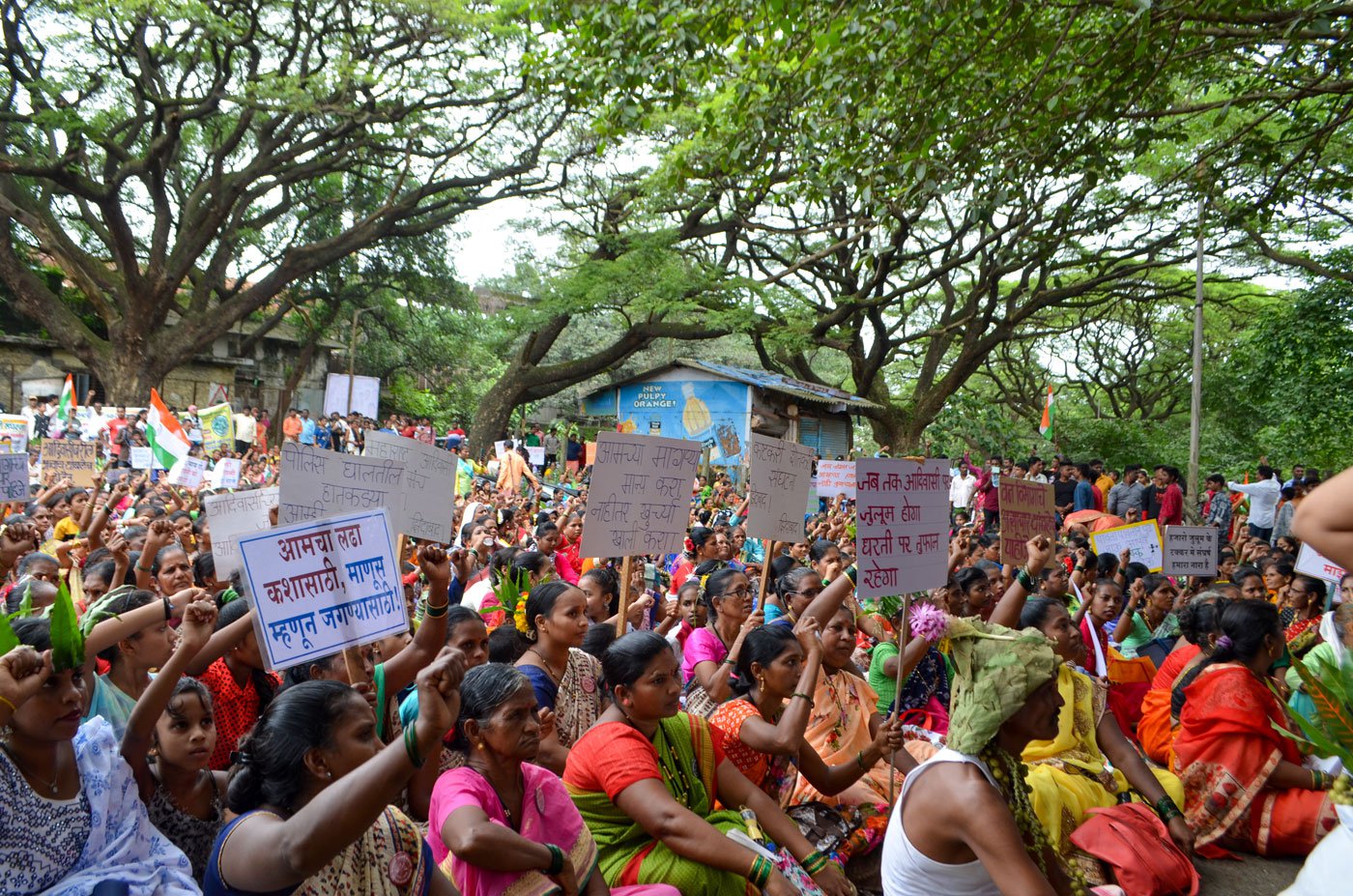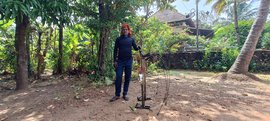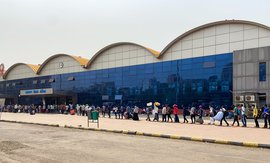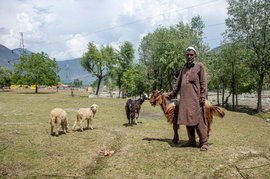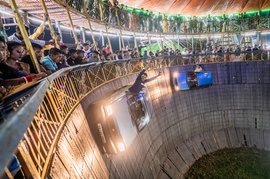“Adivasis live here in Mumbai,” Ladkya Dawde says. And not in small numbers as was seen from the roughly 3,000 people from Adivasi padas (hamlets) who came together on August 9, 2023 – World Indigenous People’s Day – in suburban Mumbai.
It was a warm morning and the air filled with celebration and hope as Adivasis from Aarey Forest, Sanjay Gandhi National Park, Mulund, Bhandup, Kandivali, Gorai and Madh Island gathered near the Goregaon check naka – the entrance to the Aarey forest in Mumbai. The Aarey forest has 27 padas and is home to around 10,000 people from Adivasi communities.
“Today is our festival,” says Ladkya from Borkhilpada in Gorai , located in the R/Central municipal ward of north Mumbai. Women were dressed in colourful sarees and clothes and a few men were wearing leaves, and garlands of beral (areca nut).
The international festival is a rallying cry for Adivasis to come together and claim their rights in Mumbai. “We have maintained the hills and the forests. Now the government has no land left, so they want to evict us from our
padas
,” says Ladkya, who belongs to the Warli Adivasi community. Without land documents it is difficult to prove their claims, making them vulnerable to eviction from their ancestral lands with houses,
wadis
and fields. Read:
Aarey Adivasis: ‘Then we lost this land of ours’
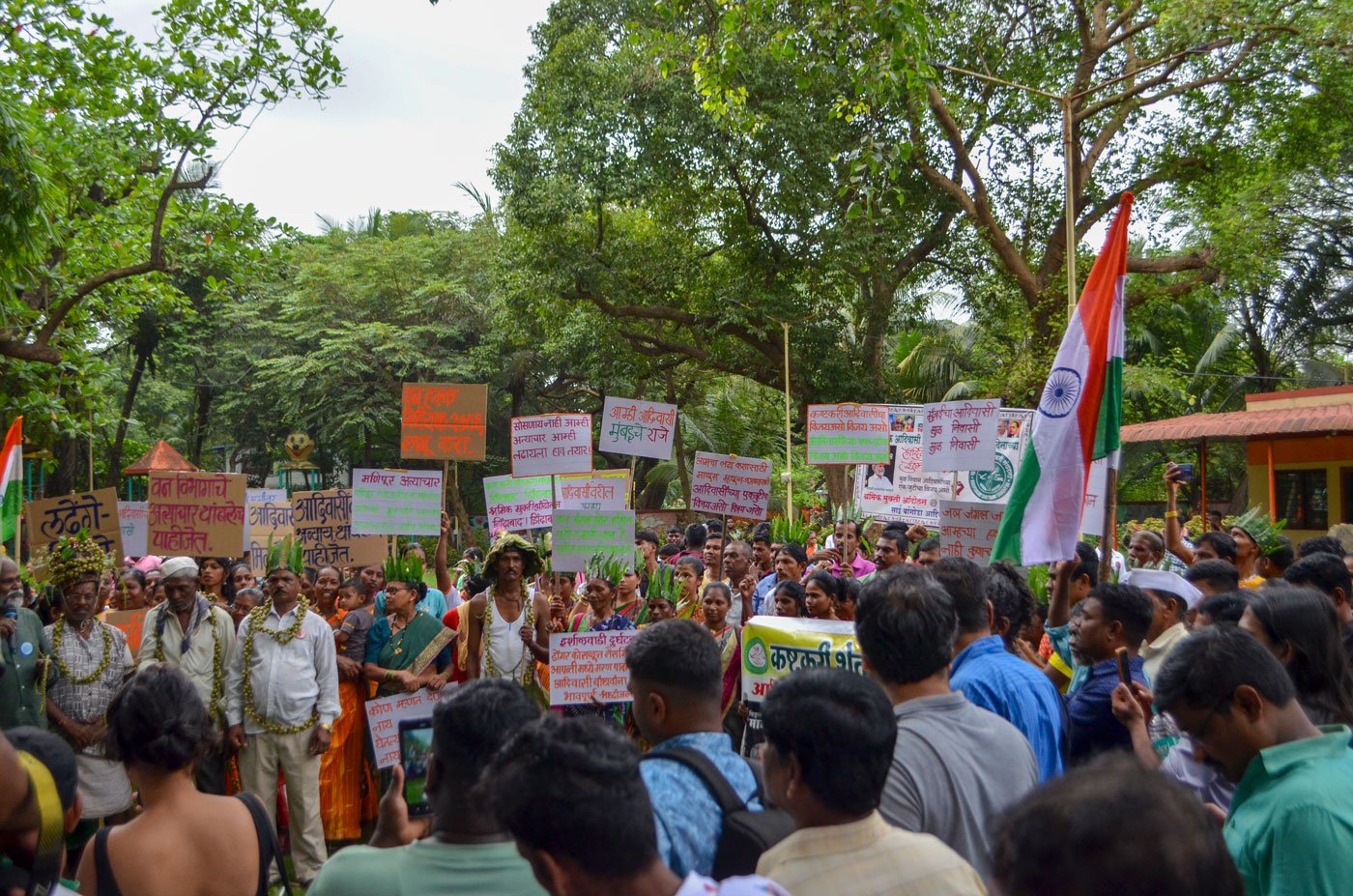
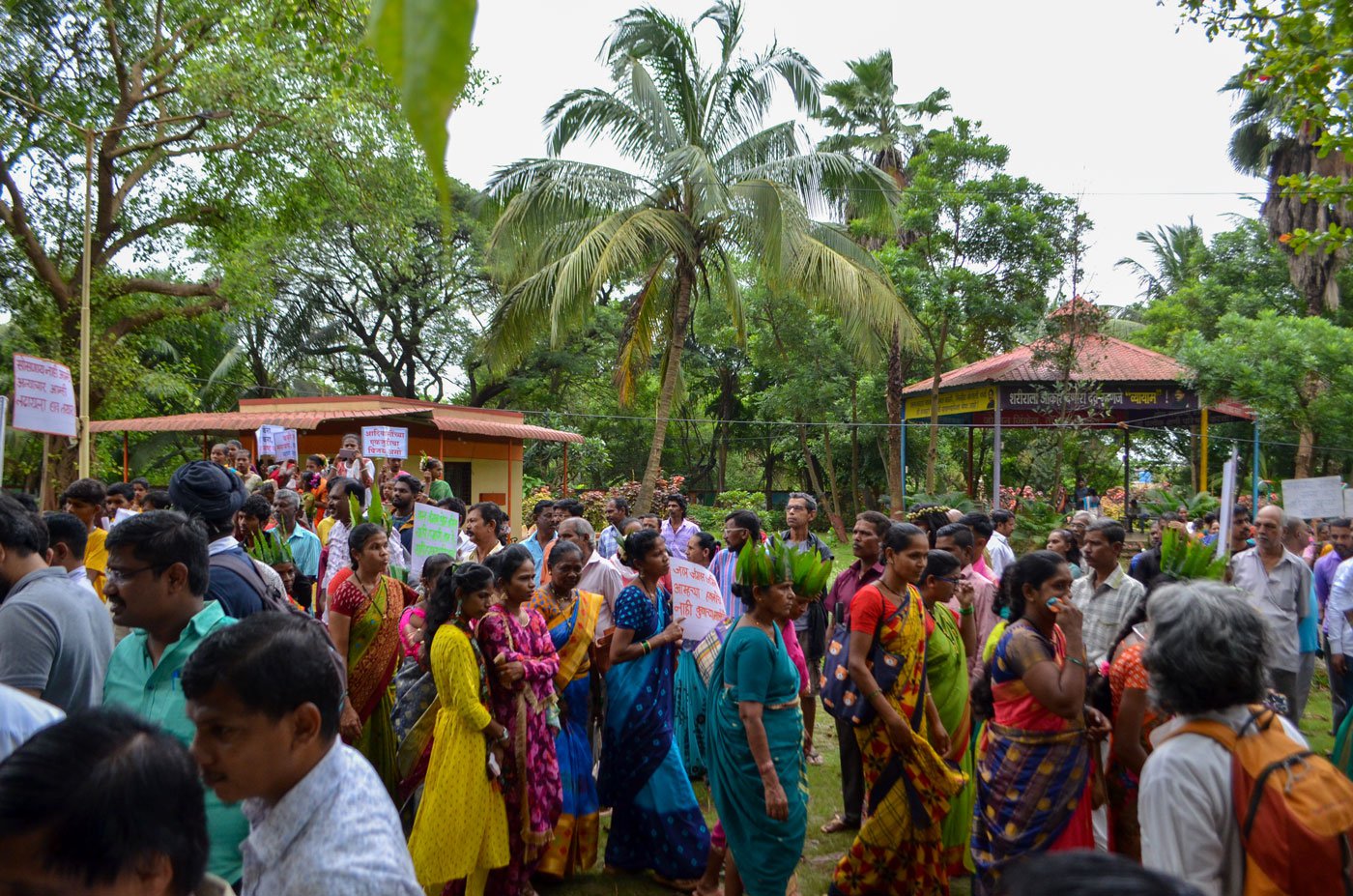
Adivasis from Mumbai gathering in a park near Goregaon check naka before the rally in Mumbai
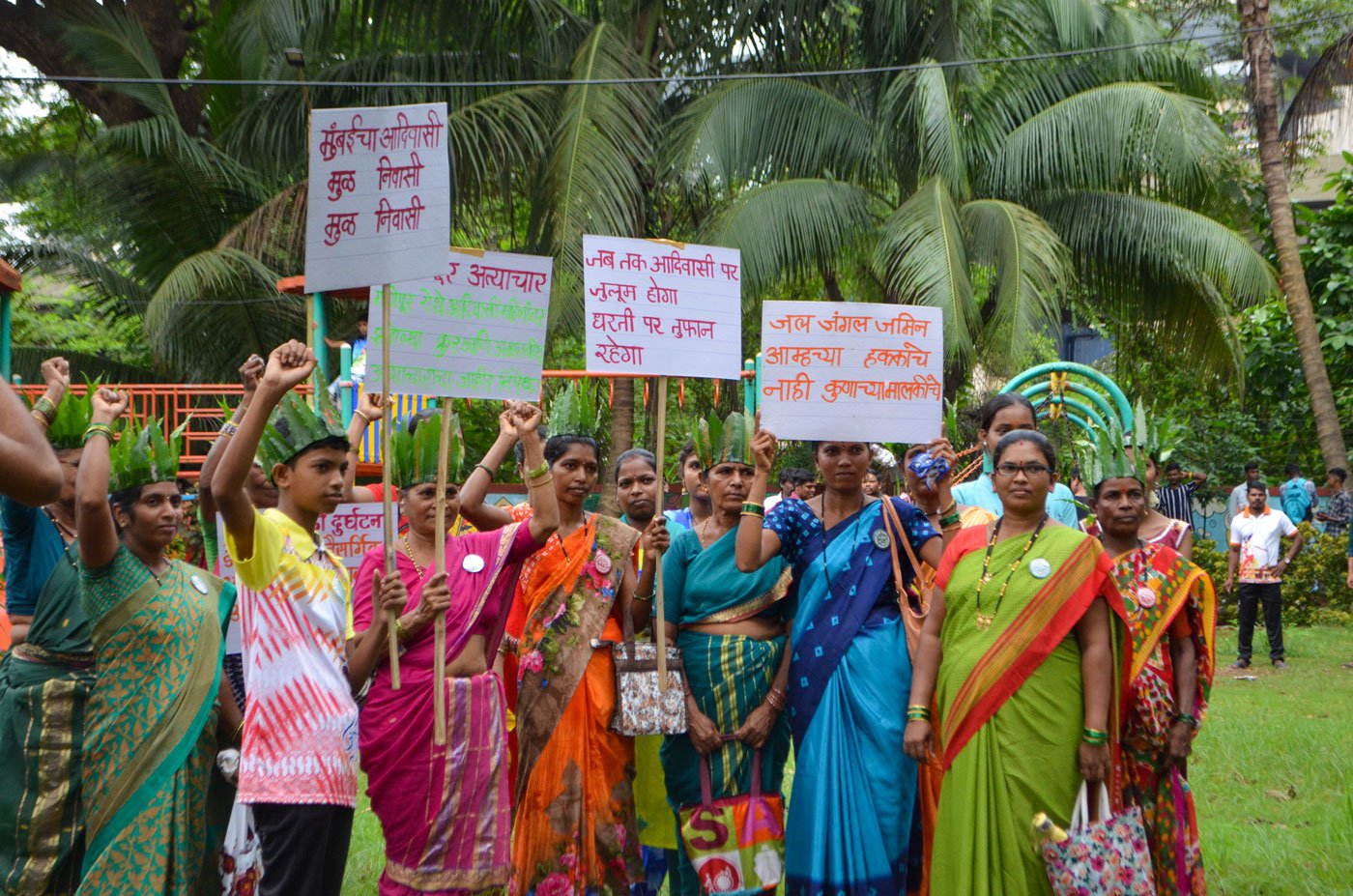
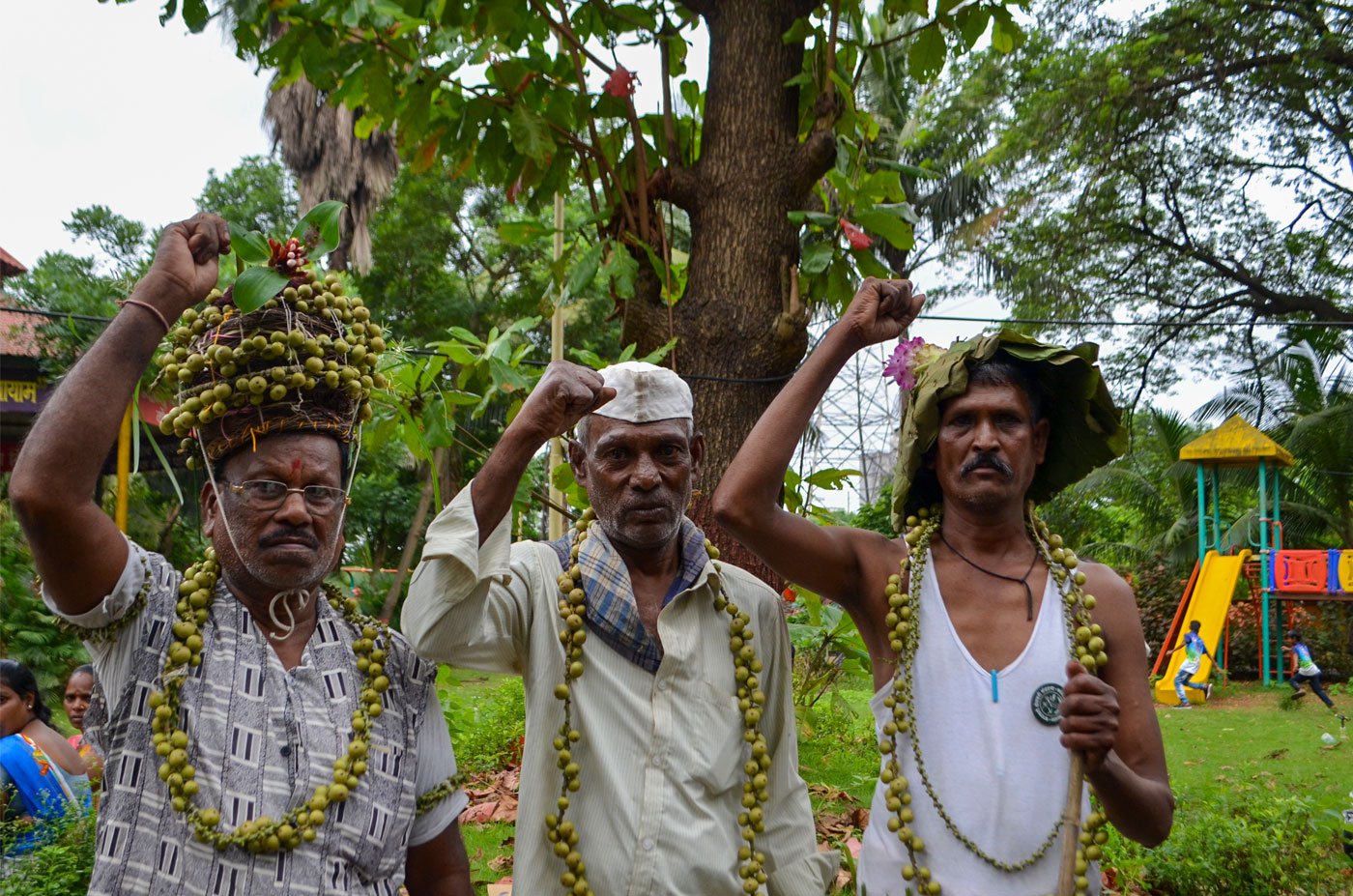
Left: Women hold up posters before the rally. Right: Ladkya Dawde (left), Prabhu Thakar and Raghu wearing garlands of beral
“The government says we are squatters from outside,” says Parvati Haddal, a Warli Adivasi from Ganpati
pada
in Madh Island. The 32-year-old Parvati works as a tuition teacher and belongs to the Kashtakari Shetkari Sanghatana (KSS), one of the organisers of the march. The other organisers are Maharashtra Adivasi Manch and Shramik Mukti Aandolan.
Vitthal Lad, founder and leader of KSS explains, “they [government] are demanding records from before 1950. Even a person who can read and write won’t have those certificates from before the [Indian] Constitution was put into force. How will Adivasi people have them?” He says there is no provision in the The Scheduled Tribes and Other Traditional Forest Dwellers (Recognition of Forest Rights) Act, 2006 (also referred to as Forest Rights Act ) that asks for it.
They say the state has also denied them other certificates. “We have not received our caste certificates, or our saatbara ,” says Narayan Kadale. He is a Thakar Adivasi farmer and grows vegetables like turai (ridge gourd), pumpkin, paan and ambadi (sorrel leaves) on 3.5 gunthas (less than one-tenth acre) of land in Banguda pada in Aarey. The saatbara functions as proof of land ownership in Maharashtra.
“They [government officials] insist that there are no Adivasis in Mumbai. They claim that we are not Adivasis, and question our caste status,” says the 39-year-old gardener and singer.
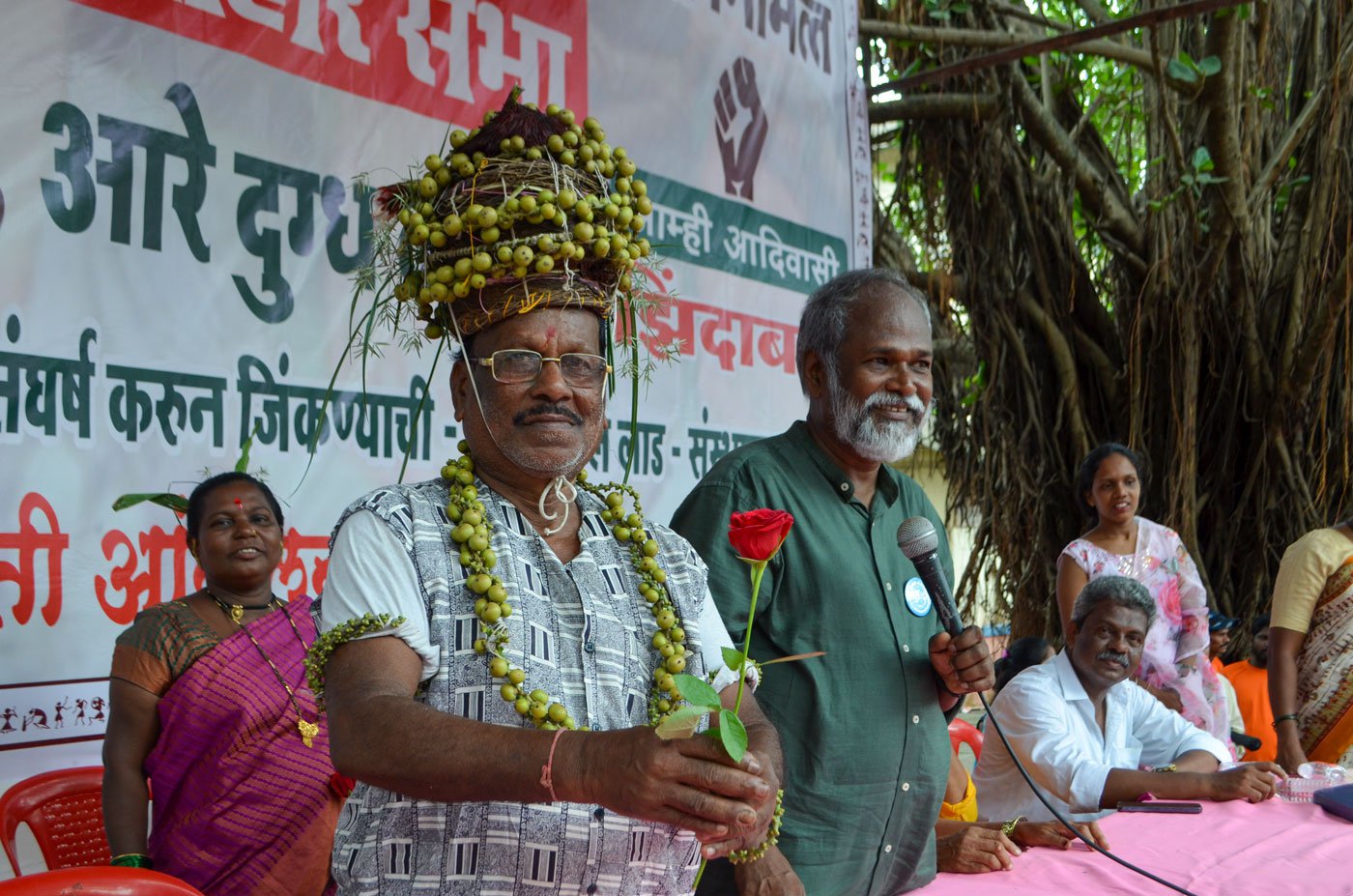
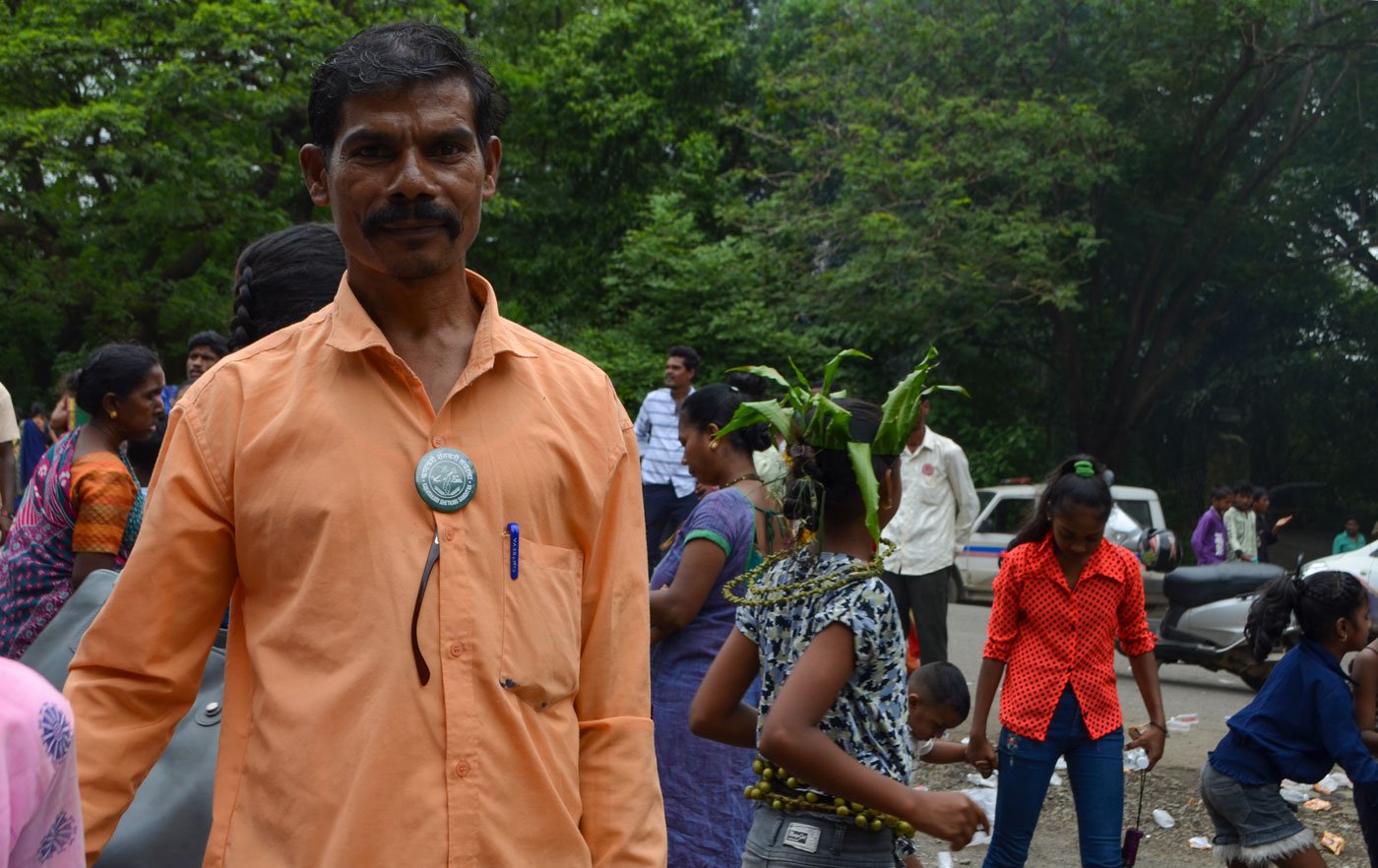
Left: Ladkya Dawde (holding a rose) with Vitthal Lad, the founder of Kashtakari Shetkari Sanghatana. Right: Narayan Kadale is a Thakar Adivasi gardener and singer from Banguda pada in Aarey
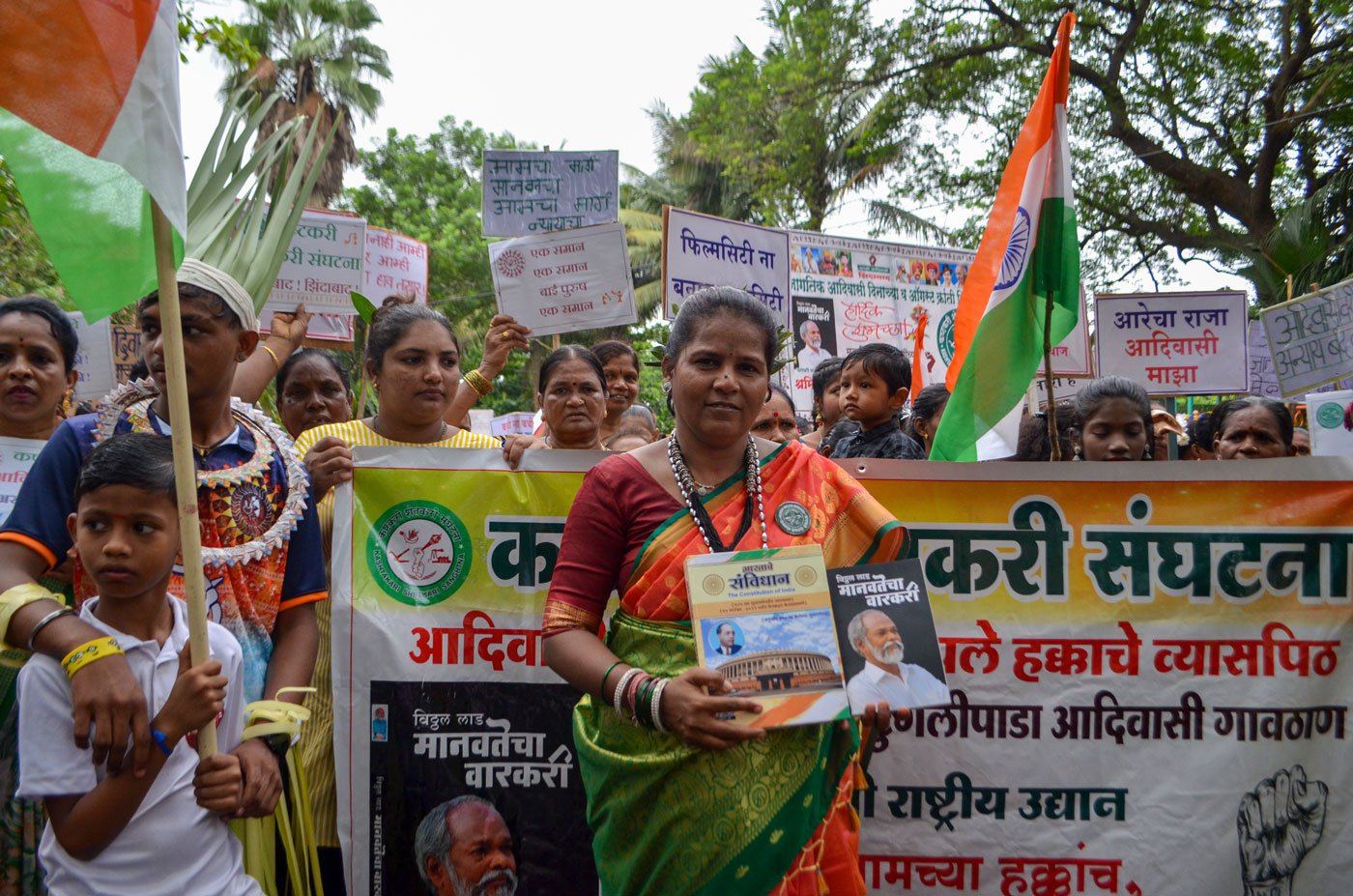
Shakuntala Dalvi, a KSS activist, holds up the Indian Constitution and a book written by Vitthal Lad
Many present at the rally had no official documents for their land, and said the process to acquire them was long and arduous.
A press release issued by organisers is asking for, “Official Declaration of 222 Mumbai Adivasi p adas as Gaothans (indigenous villages), granting them the autonomy and representation intended by the Indian Constitution.” They want official recognition of Adivasis as mul nivasis (original inhabitants) of Mumbai, caste certificates and an immediate halt to government promoted deforestation and forced displacement of Adivasi communities from their ancestral lands. They also spoke about the importance of implementing the Forest Rights Act in the padas .
“It is not just about the metro car shed but there are many other development projects – residential projects, a poultry farm, a bakery, a research institute, Film City, and so many more,” says Vitthal, listing why local communities need to be consulted before land is diverted for development projects.
Ladkya Dawde adds that all the forests left in Mumbai, “are here because we Adivasis have maintained them.” His words are echoed by every Adivasi this reporter spoke to. “Continuing such development in Aarey is going to ruin the forest so we are demanding an end to development projects in Aarey,” adds Vitthal.
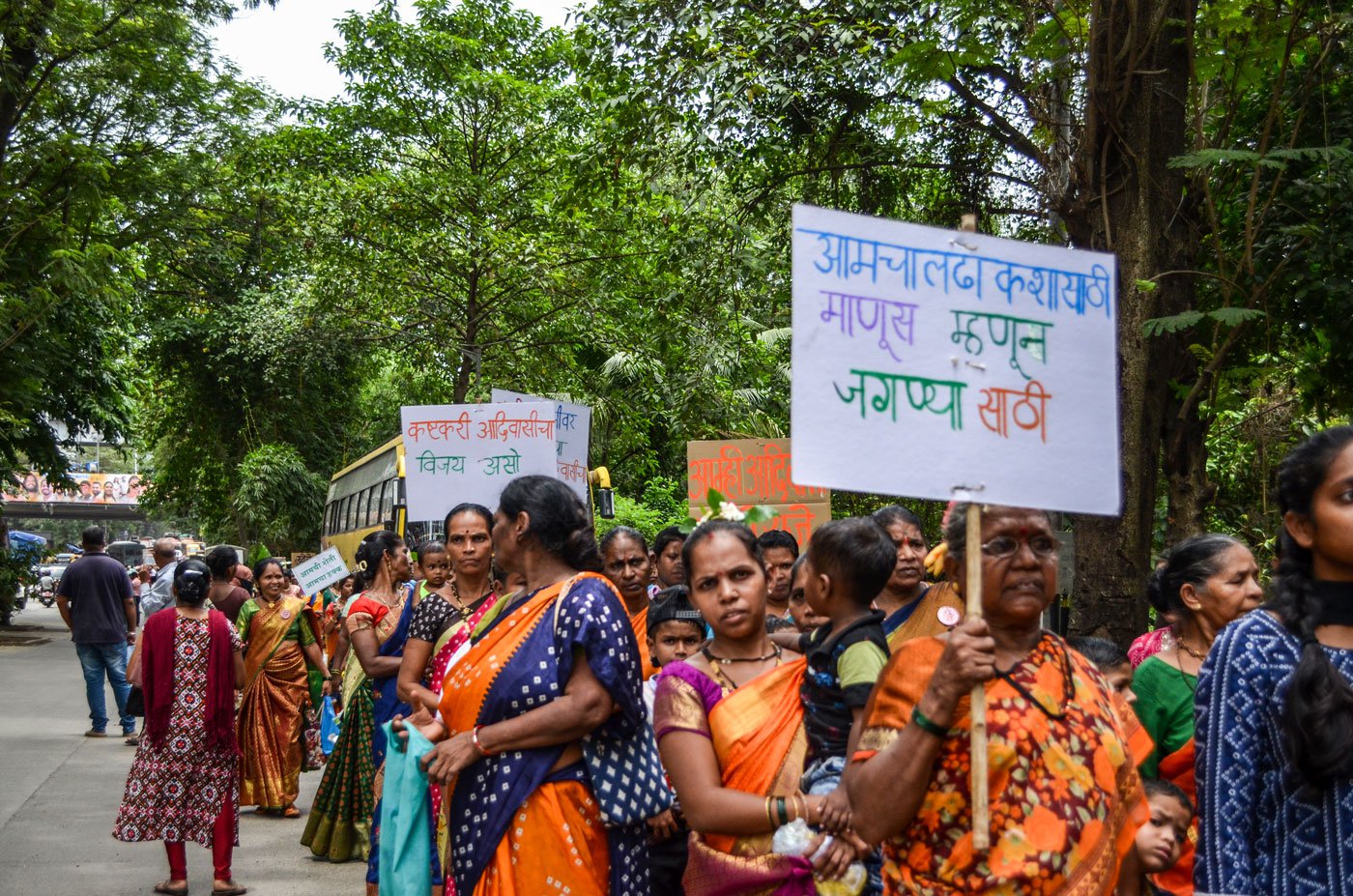
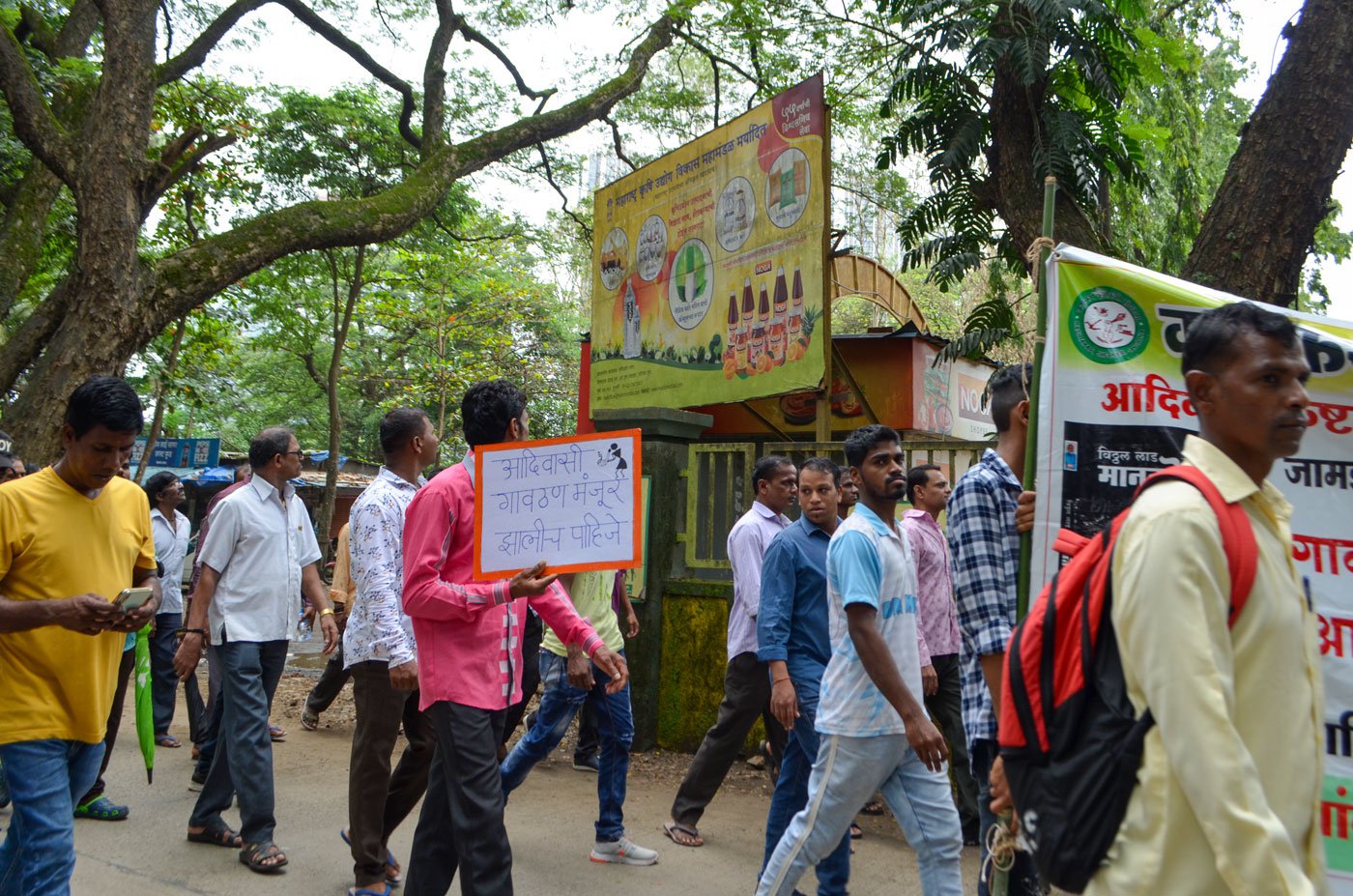
Women leading the procession during the rally
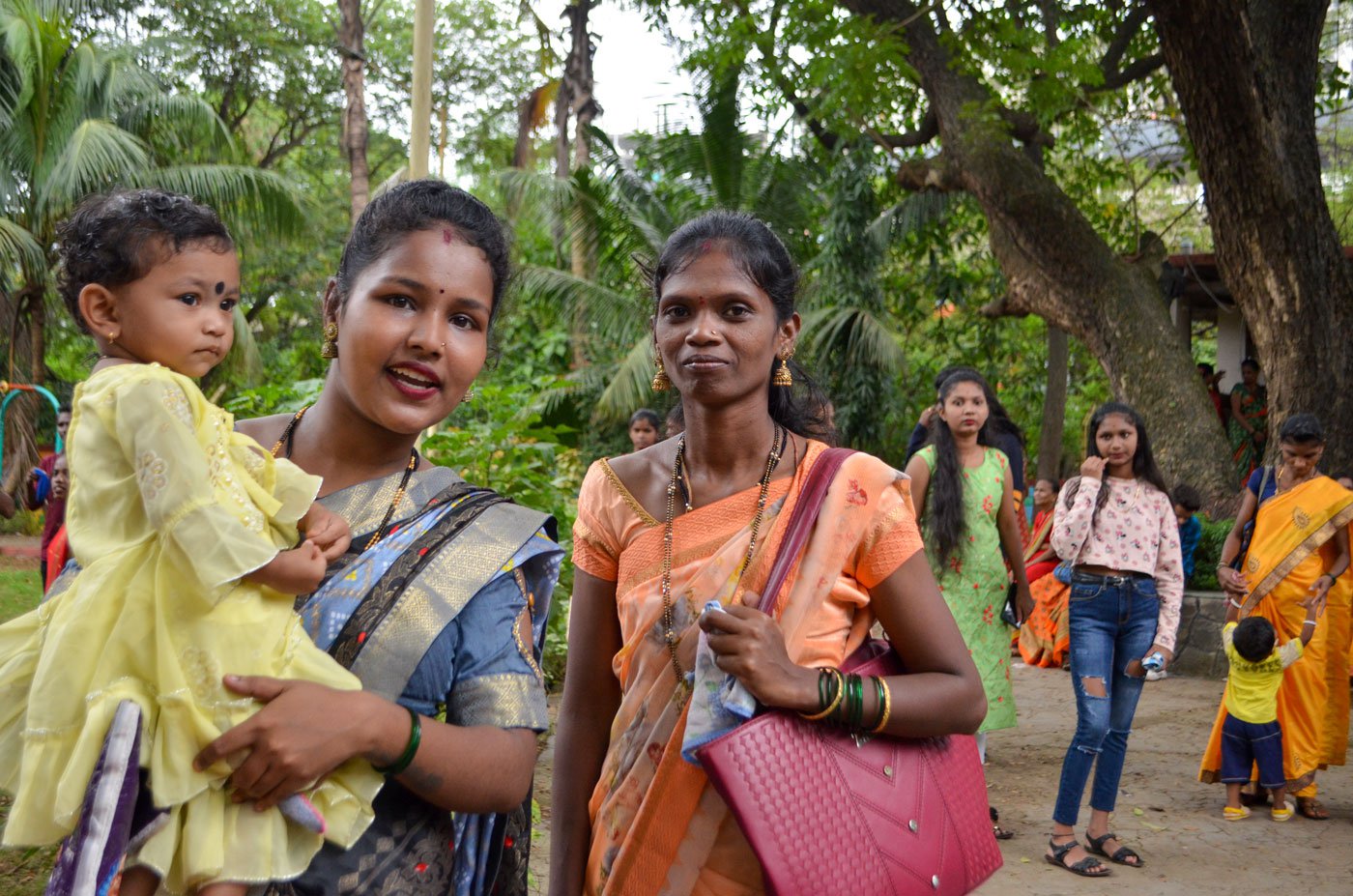
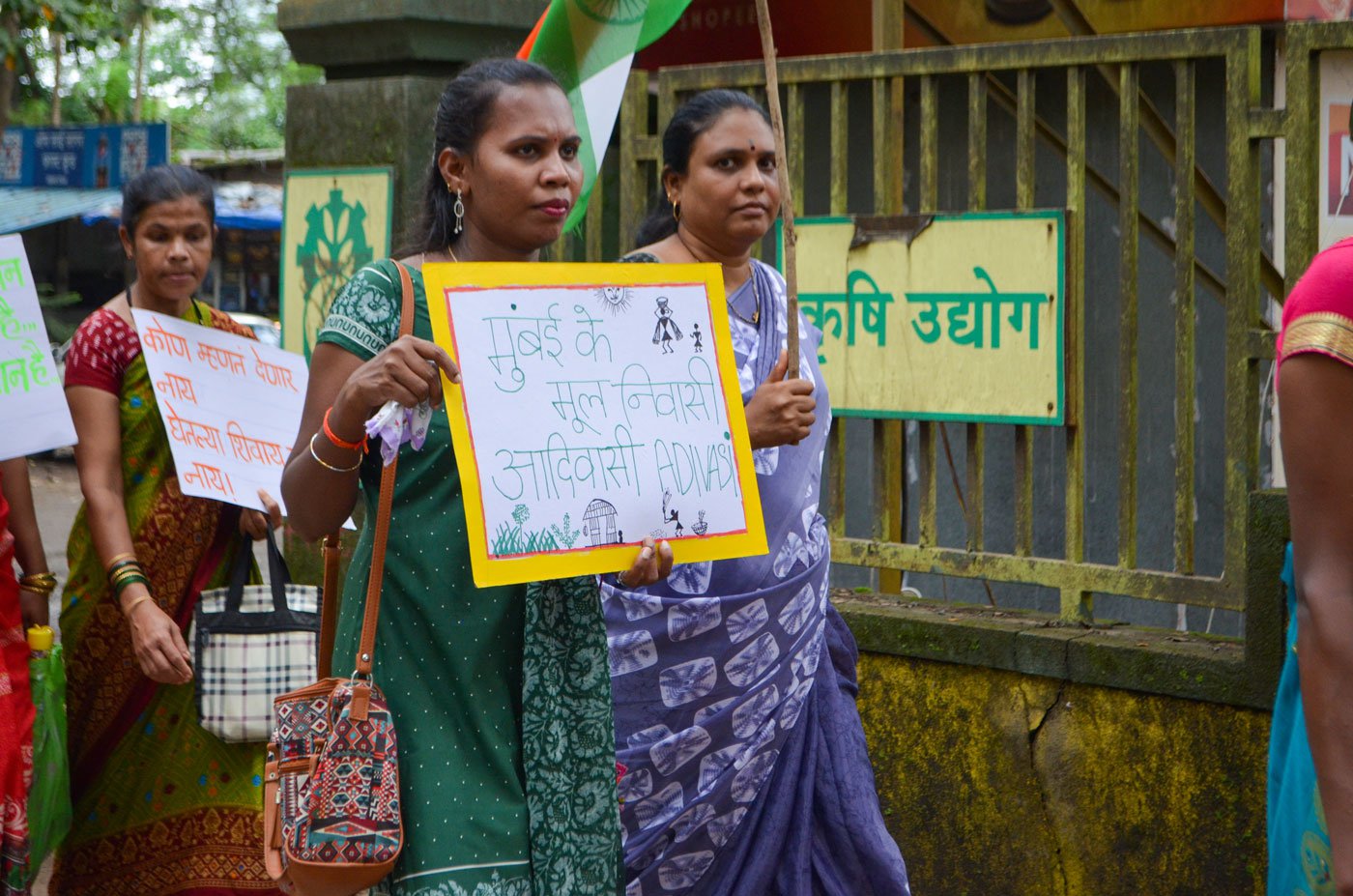
During the rally, people walked from the Goregaon check naka to the Aarey dairy to bring attention to their demands
*****
The August 9, 2023 rally covered a distance of approximately two kilometres from the check naka at Goregaon to Aarey Dairy. All along protestors shouted, “ He jangal aamcha, nahi konachya malkicha [These forests are ours, Nobody else owns it].”
The speeches at the rally also spoke against government officials who, according to the Adivasis and organisers at the rally, do not allow them to maintain their wadis or repair their houses as required. “Nobody has given us anything. We plant our wadis and our fields. Our wadis , they [forest and Aarey Dairy officials] destroy. Our houses, they break,” says Babytai Mali, who is from Moracha pada in Aarey.
Civic amenities are denied to them, despite living in the city. “After several protests, appeals to the authorities, we now finally receive water from the borewell,” says Vanita Shankar Kottal, an Adivasi social worker from Chhota Dongri, a hamlet in Gorai. While padas in Gorai have seen some progress, the same is not the case in most padas in Aarey. Some like Khambacha pada receive only around one hour of water.
In Khadakpada there are serious concerns about the quality of the water. “You wouldn't even like to look at the water, it is that dirty. There are insects in it. The pipelines are all broken, you should come have a look at it,” says resident 29-year-old Vanita (uses only this name).
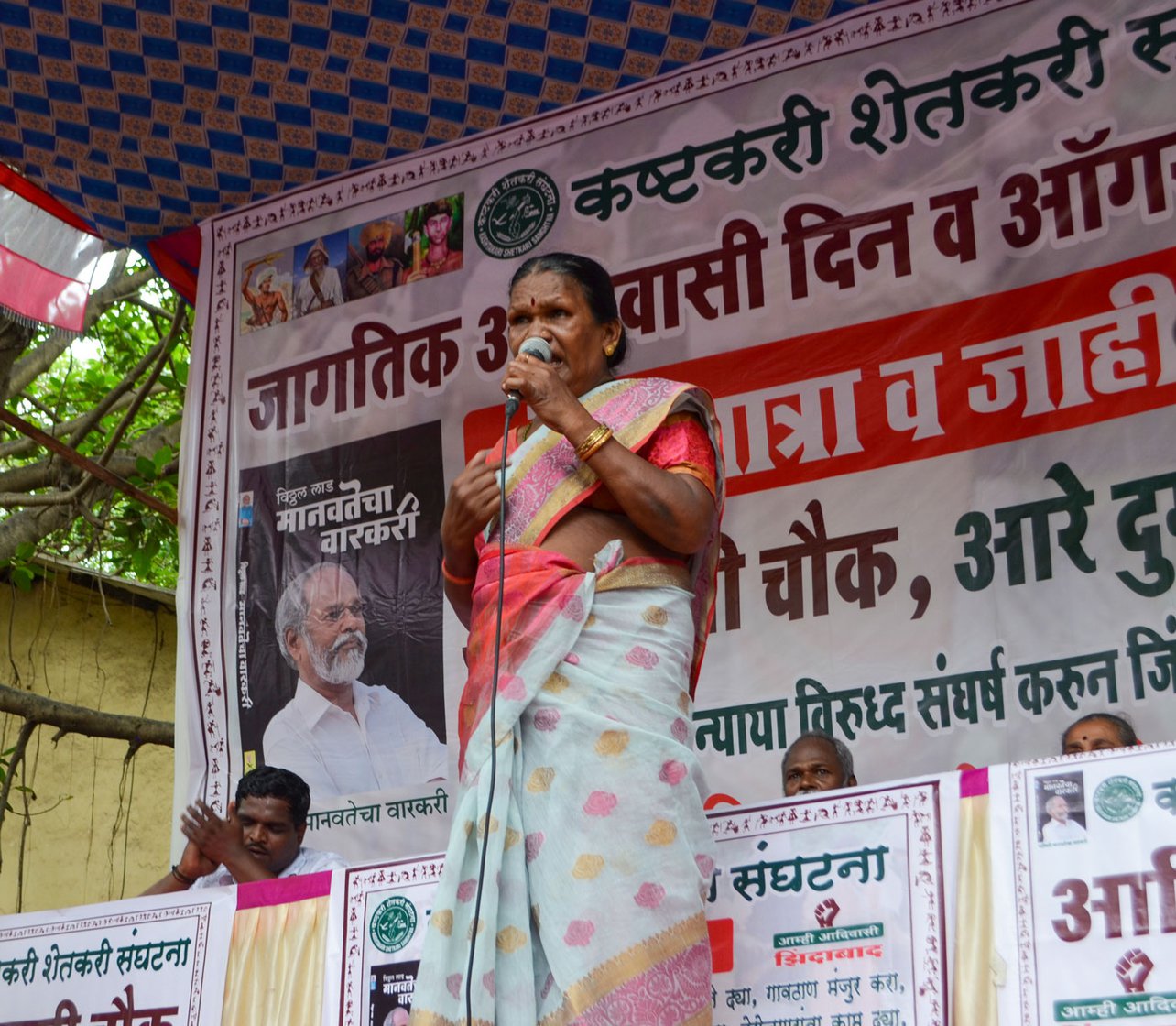
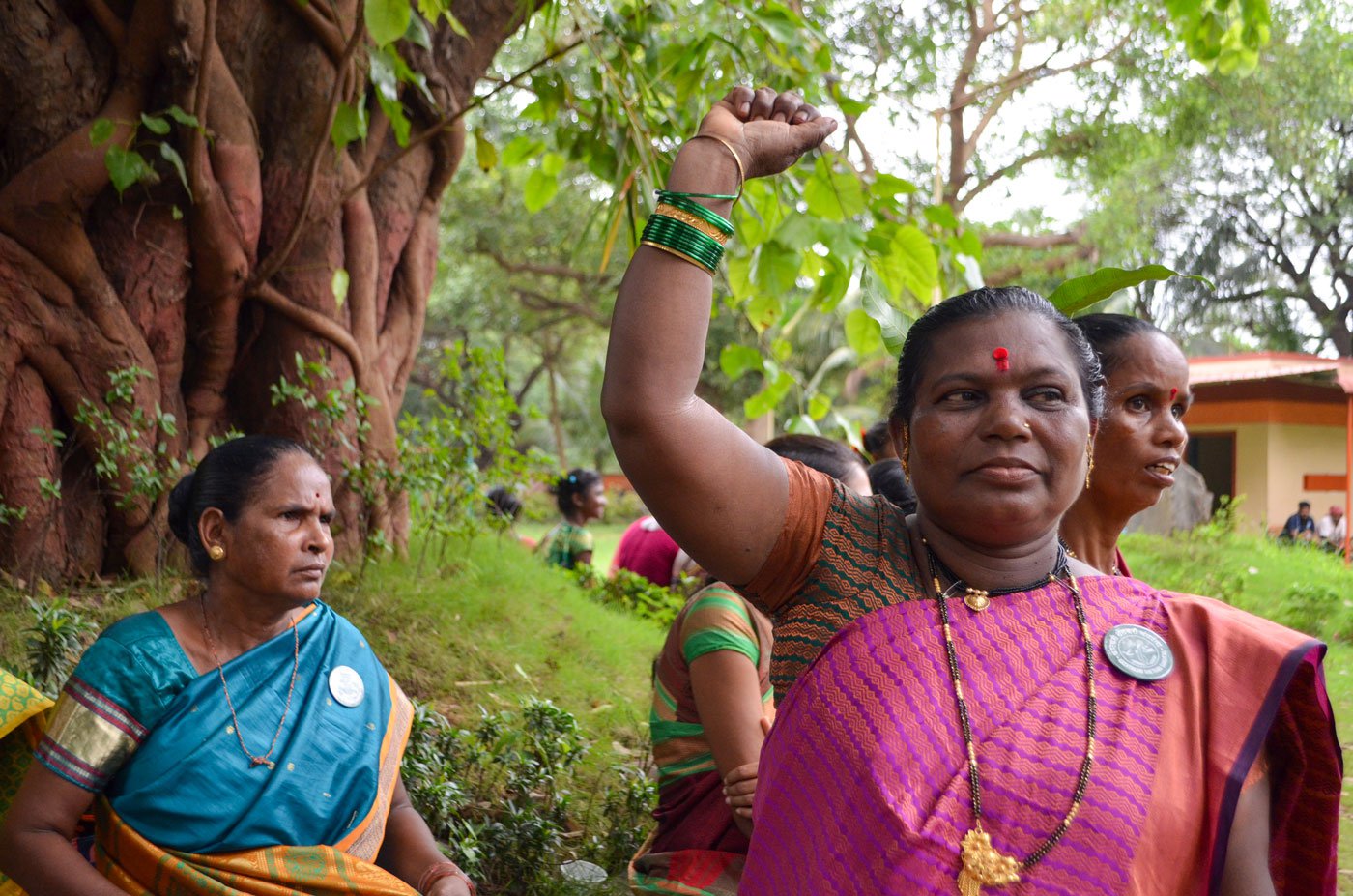
Babytai Mali, an activist with the Kashtakari Shetkari Sangathna, addressing the crowd after they reached Aarey dairy. Right: Vanita Shankar Kottal, from Chhota Dongri pada in Gorai at the rally
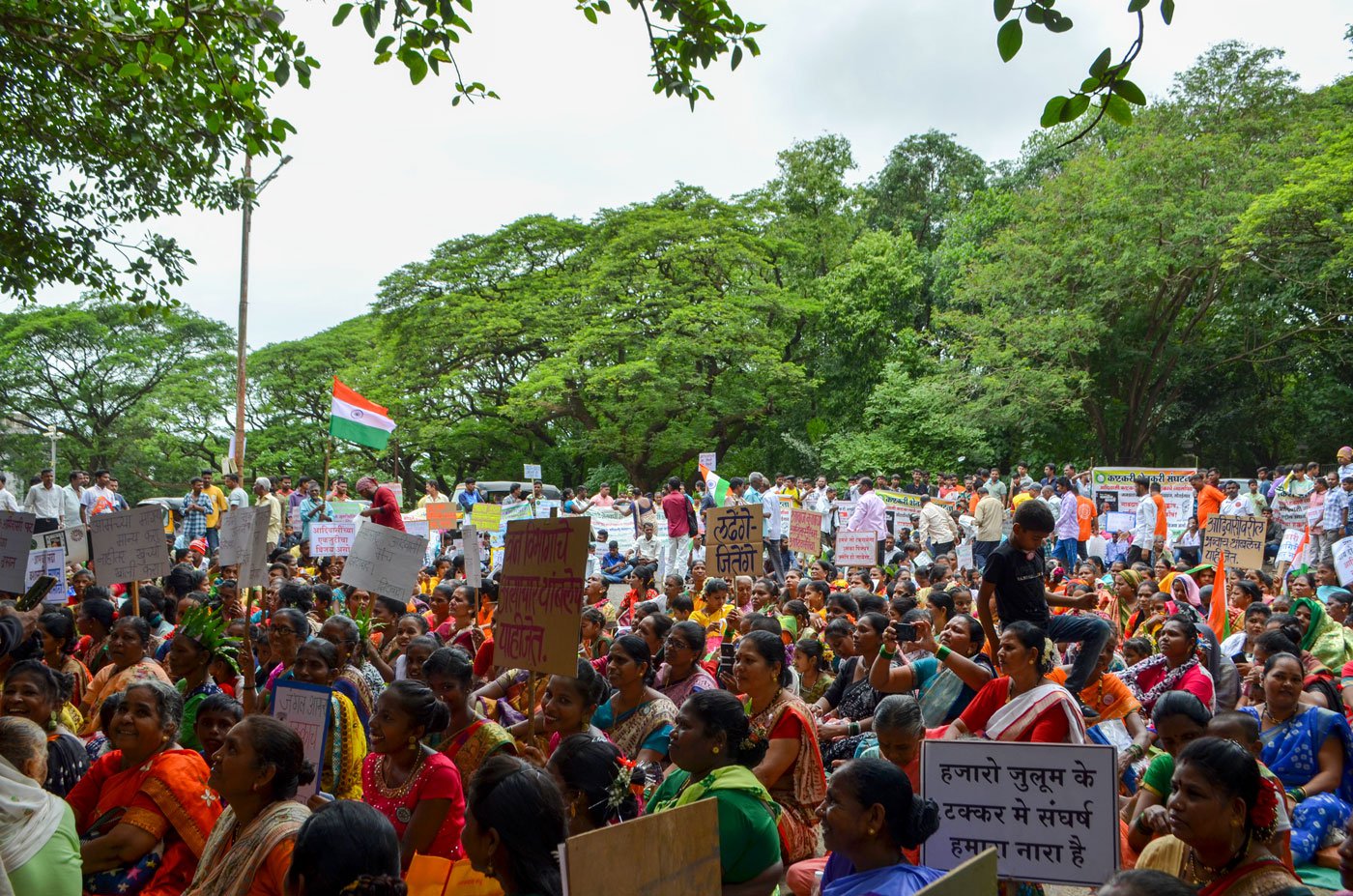
After the rally people gathered to listen to the speeches by activists
An Adivasi from Gorai and attached to the KSS, Kunal Babar, in his speech said, “it has been 75 years of independence, but we Adivasis are not free. Independence hasn’t reached us. They remove us from our lands, and the government says that there are no Adivasis in Mumbai. If that is true, where did all of us come from?”
*****
The day-long event ended with a song, written and performed by Narayan Kadale, celebrating the tribal way of life, and nature gods such as Hirwadev and Waghdeva who are worshipped by communities around Mumbai.
A gardener by profession, the 39-year-old Narayan says, “I write songs because I want to inspire the generations after me.” Young tribals showed up from different padas in Mumbai, excited to be dressed in their best clothes, carrying posters and enthusiastically shouting along to slogans of, “ Adivasi ekjuticha vijay aso [Victory to Adivasi Unity].”
“We live in different parts of Mumbai, but the questions and problems of Adivasi people are all the same. To solve these problems we all need to be united,” says Parvati.
